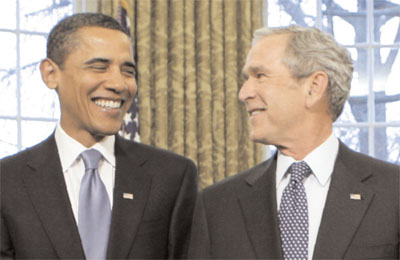The re-election of Prime Minister Benjamin “Bibi” Netanyahu after his Likud Party secured the first place with 30 out of the 120 seats in the 2015 Israeli legislative elections came as a bit of a surprise. Exit polls pointing to a better showing by the centrist-moderate coalition, the Zionist Union including the Labour Party, turned out to be wrong as the Likud emerged with far more votes than what was expected. While the Likud lacks a majority of its own, it now gets the right to form the government in coalition with other parties, and it is clear that Mr. Netanyahu will be Prime Minister for a fourth term.
The Likud victory, belying expectations, can be attributed to the polarizing campaign led by Mr. Netanyahu who took a hyper-racist position denouncing Israeli Arabs and rejecting, in the run-up to the polls, the statehood demand by Palestinians. The triumph of the right wing also reflects the sharp change in attitudes in Israeli society that has become militantly opposed to any gesture of substantive peace with Palestinians. The silver lining in the elections was the emergence of the Joint List – a group of leftist and Arab parties – as the third largest grouping with 12 seats in the Knesset. Israeli Arabs have a larger and more inclusive voice in the Knesset than before.
Globally, Mr. Netanyahu’s victory must frustrate even Israel‘s closest ally, the United States, which was unable to dissuade the Israelis from the brutal bombardment of Gaza in 2014. A hardliner victory in Israel as the U.S. is battling the Islamic State hardly helps the larger strategic plan of easing tensions in West Asia. The U.S. has expressly supported a two-state solution and it must be worried by Mr. Netanyahu’s explicit rejection of Palestine nationhood during the election campaign. The U.S. could support a UN resolution explicitly defining a Palestinian state with pre-1967 borders as a response to Mr. Netanyahu’s change of views, but it is perhaps unlikely to happen.
The U.S. is currently engaged in complex negotiations with Israel’s geopolitical rival Iran towards a nuclear treaty and would not want to upset its special relationship with Israel. Mr. Netanyahu’s allies go far beyond the White House and the U.S. State Department, with the powerful pro-Israel lobby spread across bipartisan lines in the U.S., especially in the resurgent Republican Party. However, Mr. Netanyahu’s uninhibited Zionist chauvinism might actually work to persuade western actors beyond the U.S. to see the Palestinian point of view on issues such as illegal Israeli settlements or the UN according statehood to the Palestinian Authority.
(The Hindu)





Be the first to comment